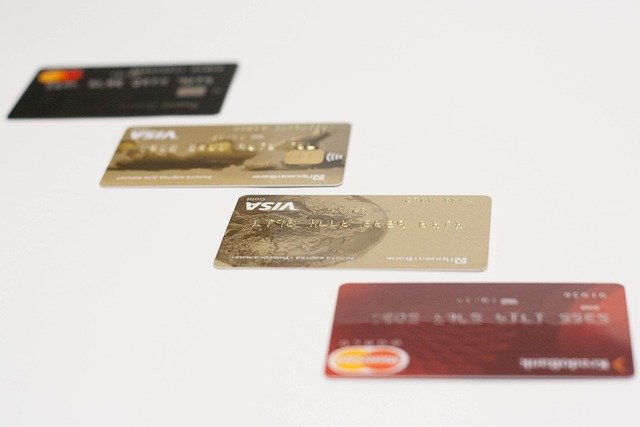Credit Cards: Understanding the Basics and Benefits for Consumers and Businesses
Credit cards have become an integral part of modern financial transactions, offering convenience and flexibility for both consumers and businesses. These small plastic or metal cards provide a line of credit that allows users to make purchases and payments without immediately using their own funds. Understanding how credit cards work, their benefits, and potential drawbacks is crucial for anyone looking to manage their finances effectively.

The credit card transaction process involves several steps:
-
The cardholder presents their card to make a purchase.
-
The merchant’s payment terminal communicates with the card issuer to verify funds and approve the transaction.
-
Upon approval, the merchant receives payment, usually within a few business days.
-
The cardholder receives a monthly statement detailing their purchases and the amount due.
What are the benefits of using credit cards for consumers?
Credit cards offer numerous advantages for individual users:
-
Convenience: They eliminate the need to carry large amounts of cash and can be used for in-person, online, and international purchases.
-
Building credit: Responsible use of credit cards can help establish and improve credit scores, which is crucial for future loans or financial opportunities.
-
Rewards programs: Many cards offer cashback, points, or miles for purchases, providing additional value to cardholders.
-
Purchase protection: Some cards offer extended warranties, fraud protection, and insurance on purchases.
-
Emergency funds: Credit cards can serve as a financial safety net in unexpected situations.
How do businesses benefit from accepting credit card payments?
For merchants and businesses, accepting credit card payments can significantly impact their bottom line:
-
Increased sales: Customers are more likely to make purchases, especially large ones, when credit is an option.
-
Improved cash flow: Credit card transactions typically settle faster than checks, providing quicker access to funds.
-
Enhanced customer experience: Offering multiple payment options caters to customer preferences and convenience.
-
Reduced risk: Unlike cash, credit card payments eliminate the risk of counterfeit currency and reduce cash handling errors.
-
Easier record-keeping: Electronic transactions provide detailed records, simplifying accounting and financial management.
What fees are associated with credit card transactions?
Both consumers and businesses should be aware of the costs associated with credit card usage:
For consumers:
-
Annual fees
-
Interest charges on unpaid balances
-
Late payment fees
-
Foreign transaction fees
-
Cash advance fees
For businesses:
-
Merchant account fees
-
Transaction fees (usually a percentage of the sale plus a flat fee)
-
Chargeback fees
-
Payment gateway fees (for online transactions)
-
PCI compliance fees
How can businesses choose the right credit card processing solution?
Selecting the appropriate credit card processing solution is crucial for businesses to maximize benefits and minimize costs. Factors to consider include:
-
Transaction volume and average ticket size
-
Types of transactions (in-person, online, mobile)
-
Industry-specific needs
-
Integration with existing point-of-sale systems
-
Pricing structure and fees
-
Customer support and reliability
| Provider | Services Offered | Key Features/Benefits |
|---|---|---|
| Square | In-person, online, and mobile payments | Easy setup, flat-rate pricing, free POS software |
| PayPal | Online and in-person payments | Widely recognized, integrates with e-commerce platforms |
| Stripe | Online payments and developer-friendly solutions | Customizable API, supports multiple currencies |
| Authorize.Net | Online and in-person payments | Advanced fraud detection, recurring billing options |
| Clover | In-person payments with hardware solutions | All-in-one POS systems, customizable apps |
What security measures protect credit card transactions?
Security is paramount in credit card transactions to protect both consumers and businesses from fraud. Key security measures include:
-
EMV chip technology: These chips create unique codes for each transaction, making it difficult to counterfeit cards.
-
PCI DSS compliance: A set of security standards that businesses must follow to protect cardholder data.
-
Tokenization: Replaces sensitive card data with unique identification symbols, maintaining security in storage and transmission.
-
Fraud detection algorithms: Advanced systems that monitor transactions for suspicious activity.
-
Two-factor authentication: An extra layer of security for online transactions, often requiring a code sent to the cardholder’s phone.
Credit cards have revolutionized the way we conduct financial transactions, offering convenience, security, and benefits for both consumers and businesses. By understanding how credit cards work, the associated costs, and the security measures in place, individuals and merchants can make informed decisions about their use and acceptance. As technology continues to evolve, credit cards are likely to remain a crucial component of the global financial ecosystem, adapting to new security challenges and user needs.






